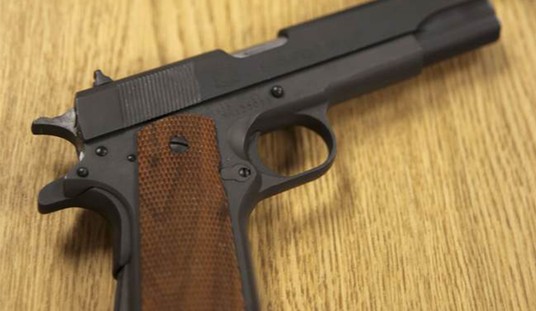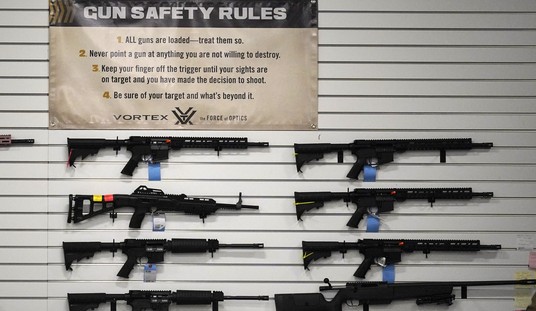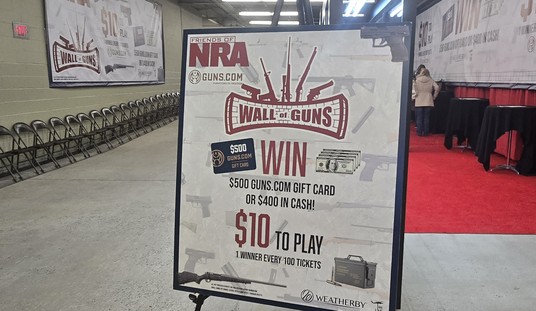New York City politicians seem willing to do almost anything to get a handle on the violent crime surge in the city that’s sent the number of shootings and homicides soaring. Almost anything. There’s not a single city council member or elected official who’s suggested repealing the city’s draconian gun licensing laws and actually recognizing the right to bear arms in self-defense, of course. It would likely take a Mayor Snake Plissken to ram something like that through the city council, and though plenty of residents are already escaping from New York, sadly Plissken isn’t in charge.
Instead, politicians in the city are determined to do “something,” even if that something doesn’t amount to much of anything at all.
Thirty three guns are now off New York’s streets thanks to a gun buyback held in Brooklyn on Saturday.
Men and women that arrived carrying firearms in bags left with $200 per gun after surrendering them, no questions asked. The event was hosted by Brooklyn District Attorney Eric Gonzalez and the NYPD as the city faces an uptick in gun violence. It was the first buyback in the borough since 2016, which yielded 60 guns.
“You know we have too many guns in the streets, and this is probably the best thing to do,” said one Brooklyn resident who wished to remain anonymous after turning in a revolver. “Hand it over before anything goes down, and that makes New York more safer,” he said, a Blue Lives Matter hat atop his head.
Thirty-three guns isn’t a lot. Frankly, I know plenty of gun owners who have a bigger collection than what the Brooklyn D.A. managed to acquire over the weekend. It’s also telling that the number of guns collected over the weekend was about half the number turned in back in 2016, even though shootings in the city are much more common than they were four years ago.
Violent crime always rises in the summer, but this year has been extreme in New York. Since May, the city has recorded 791 shootings, a more than 140 percent increase over the same period in 2019. The 180 murders seen between May and August is a more than 51 percent increase compared to 2019.
In August alone, there were 242 shootings in the city, compared with 91 last year, and the number of murders rose from 36 to 53. As a result, the city surpassed 1,000 shootings before Labor Day, making it the worst year for gun violence since 2015, with four months left to go.
These compensated confiscation programs (a term I find much more accurate than “buyback”) don’t do anything to reduce violent crime to begin with, but the anemic response to the Brooklyn turn-in program tells me that plenty of New Yorkers are hanging on to their guns because of concerns that they might ultimately have to use them to defend themselves.
Surprisingly, even some NYPD officials admitted that they don’t expect the compensated confiscations to lead to safer streets.
Brooklyn North Chief Judith Harrison oversees 10 precincts serving the neighborhoods of Brownsville, Brooklyn Heights, Greenpoint, Clinton Hill, Crown Heights, Bed-Stuy, Bushwick, and Williamsburg. Shootings this year across Brooklyn North are up 109% when compared to this time last year. Echoing Rev. Brawley, she said the buyback was about more than safety.
“Really the goal is also just to make sure that we have more opportunities to build public trust.”
Harrison said her command made 44 gun arrests across Brooklyn North the week before the buyback. She said most of the recent gun violence is gang- and crew-related.
“We’re also seeing retaliatory violence that has us very concerned,” she said.
I think the goal of building public trust is a good one, but this isn’t how I’d go about it. Trust doesn’t come when you hand over a gun to the police, even if there are no questions asked. You build trust by being in the community every day, talking with residents, responding to calls, and most importantly, ensuring that violent offenders are taken off of the street and prosecuted to the fullest extent of the law. Sadly, the Brooklyn “buyback” was ultimately about public relations, not public safety.









Join the conversation as a VIP Member